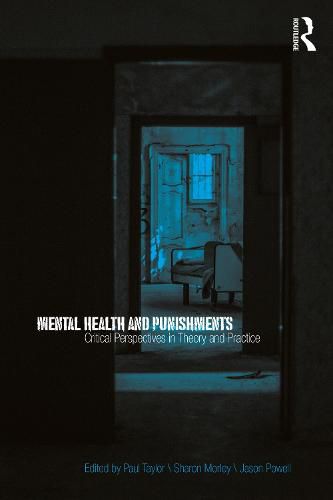Readings Newsletter
Become a Readings Member to make your shopping experience even easier.
Sign in or sign up for free!
You’re not far away from qualifying for FREE standard shipping within Australia
You’ve qualified for FREE standard shipping within Australia
The cart is loading…






How might we best manage those who have offended but have mental vulnerabilities? How are risks identified, managed and minimised? What are ideological differences of care and control, punishment and therapy negotiated in practice? These questions are just some which are debated in the eleven chapters of this book. Each with their focus on a given area, authors raise the challenges, controversies, dilemmas and concerns attached to this particular context of delivering justice.
Taking insights on imprisonment, community punishments and forensic services, this book provides a broad analysis of environments. But it also casts a critical light on how punishment of the mentally vulnerable sits within public attitudes and ideas, policy discourses, and the ways in which those seen to present as risky and dangerous are imagined.
Written in a clear and direct style, this book serves as a valuable resource for those studying, working or researching at the intersections of healthcare and criminal justice domains. This book is essential reading for students and practitioners within the fields of criminology and criminal justice, social work, forensic psychology, forensic psychiatry, mental health nursing and probation.
$9.00 standard shipping within Australia
FREE standard shipping within Australia for orders over $100.00
Express & International shipping calculated at checkout
How might we best manage those who have offended but have mental vulnerabilities? How are risks identified, managed and minimised? What are ideological differences of care and control, punishment and therapy negotiated in practice? These questions are just some which are debated in the eleven chapters of this book. Each with their focus on a given area, authors raise the challenges, controversies, dilemmas and concerns attached to this particular context of delivering justice.
Taking insights on imprisonment, community punishments and forensic services, this book provides a broad analysis of environments. But it also casts a critical light on how punishment of the mentally vulnerable sits within public attitudes and ideas, policy discourses, and the ways in which those seen to present as risky and dangerous are imagined.
Written in a clear and direct style, this book serves as a valuable resource for those studying, working or researching at the intersections of healthcare and criminal justice domains. This book is essential reading for students and practitioners within the fields of criminology and criminal justice, social work, forensic psychology, forensic psychiatry, mental health nursing and probation.